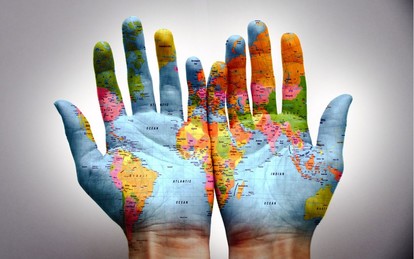The confluence of Bahá’í teachings and Indigenous knowledge presents a compelling framework for reimagining the global economy. At the very core of these teachings lies the recognition of the interconnectedness of humanity, akin to a vast web, where each thread represents a distinct culture, insight, and value system. In this intricate tapestry, Indigenous knowledge stands out as a vibrant strand, laden with wisdom that can catalyze transformative economic practices worldwide. This article delves into the pivotal role that Indigenous knowledge can play in reshaping the trajectories of contemporary economic systems, in harmony with Bahá’í principles.
To commence this exploration, it is essential to understand the foundational tenets of Bahá’í teachings regarding unity and equity. These principles emphasize the necessity of collaborative efforts in addressing systemic issues that besiege the global economy, including inequality, environmental degradation, and unsustainable practices. The Bahá’í perspective posits that the prosperity of one community is inexorably linked to the well-being of all; thus, the infusion of Indigenous understandings into economic discourses becomes not just beneficial, but imperative.
This notion of unity can be metaphorically illustrated through the imagery of a flourishing orchard. Each tree in this orchard represents a unique culture or worldview. The health of the entire orchard depends not merely on the thriving of individual trees but also on the symbiotic relationships that intertwine their roots and branches. As such, Indigenous knowledge serves as an essential nutrients reservoir, enriching the soil that sustains the economic ecosystem.
Indigenous knowledge, often characterized by its deep connection to the land, sustainability, and communal well-being, offers innovative solutions that challenge the status quo. For instance, traditional ecological practices — such as crop rotation, biodiversity conservation, and resource sharing — present counter-narratives to capitalist logics that prioritize profit over sustainability. Such paradigms resonate with Bahá’í teachings, which advocate for the promotion of justice and the protection of the environment for future generations.
Furthermore, the integration of Indigenous knowledge into economic practices fosters resilience. In an era where climate change poses an existential threat, communities that draw upon traditional wisdom are often better equipped to navigate challenges. Their adaptive practices stand as testament to centuries of experiential learning, an invaluable asset that can inform global strategies for sustainable development. In this context, the synergy of Indigenous ecological wisdom with modern scientific findings formulates a potent elixir for resilience.
It is pivotal to recognize that the elevation of Indigenous knowledge cannot be devoid of a consciousness toward ethical considerations. The Bahá’í teachings advocate for the respectful engagement with diverse cultures, underscoring the necessity for collaboration rather than appropriation. This ethical engagement harkens back to the orchard metaphor, which emphasizes that while one may benefit from the fruits of a tree, it is of paramount importance to acknowledge its roots and the environment that nurtured its growth.
Moreover, the recognition of Indigenous knowledge in economic spheres encourages a shift away from a strictly materialistic worldview towards a more holistic perception of wealth. Traditional Indigenous frameworks often conceive of wealth not merely in monetary terms, but as a multifaceted construct encompassing social, environmental, and spiritual dimensions. This multidimensionality aligns with the Bahá’í vision of a prosperous global society. By redefining wealth through this lens, societies can catalyze a transition towards economies that celebrate diversity and promote universal prosperity.
The infusion of Indigenous perspectives also engenders opportunities for the reimagining of economic structures and institutions. By embracing models that prioritize community stewardship and cooperative practices, societies can challenge the hegemonic narratives of individualism and competition. Such transformations can draw from Indigenous governance structures that emphasize consensus-building and collective decision-making, resonating with Bahá’í principles of consultation and collective action.
Additionally, the empowerment of Indigenous communities through thoughtful economic interventions leads to the reclamation of agency. The Bahá’í teachings encourage the upliftment of marginalized voices, advocating for a narrative where Indigenous peoples are not mere recipients of aid but active participants in the shaping of their own economic destinies. This paradigm reaffirms the importance of self-determination, allowing Indigenous communities to forge economic pathways that reflect their values and aspirations.
In envisioning a future where Bahá’í principles harmonize with Indigenous knowledge, one can imagine an economic landscape wherein social enterprises flourish—initiatives that merge profitability with purpose, prioritizing the welfare of communities and the planet. Such enterprises serve as beacons of hope in a world often overshadowed by greed, illuminating pathways to equity, sustainability, and cultural reverence.
As we traverse this expansive terrain, the anticipatory call is clear: acknowledging and integrating Indigenous knowledge within the global economic framework not only enriches our collective understanding but invigorates our capacity for innovative solutions to pressing challenges. In doing so, we move towards an economy that mirrors the Bahá’í vision—a world imbued with justice, harmony, and a profound respect for our shared humanity.
In conclusion, the transformative potential of integrating Indigenous knowledge with Bahá’í teachings exemplifies a profound shift towards a more equitable and sustainable global economy. As we cultivate this vision, let us nurture the threads of cultural wisdom and mutual respect, ensuring that our economic practices reflect the beauty of diversity and the abiding principles of unity.
